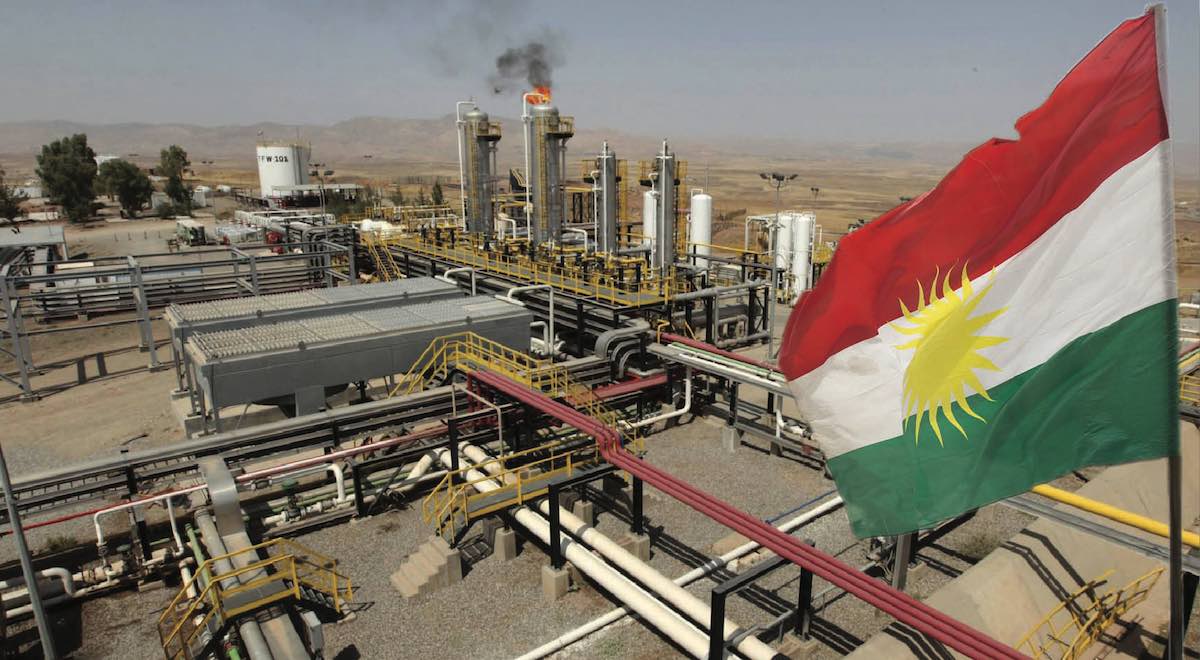International companies in the Kurdistan Region urge respect for their rights when enacting the oil and gas law
 Shafaq News / The Kurdistan Petroleum Industry Association (IPCOR), on Monday, called on the governments of Baghdad and Erbil to preserve the contractual rights in the new oil and gas law to be legislated.
Shafaq News / The Kurdistan Petroleum Industry Association (IPCOR), on Monday, called on the governments of Baghdad and Erbil to preserve the contractual rights in the new oil and gas law to be legislated.
The union, which represents companies including “DNO”, “Genel Energy”, “Gulf Keystone Petroleum”, “HKN Energy” and “ShaMaran Petroleum”, said in a statement received by Shafaq News agency, “We urge the integration of companies’ rights into the Iraq budget and any future laws.” Oil and gas control in federal Iraq and the Kurdistan Region.
“It is essential for the future of the industry in these regions, and the many jobs that support them, that the outcome of the negotiations include recovery of costs and profits to which international oil companies are entitled under existing production sharing contracts,” he added.
The Kurdistan Regional Government and the Iraqi federal government held a meeting on the fifth of August to discuss drafting a new oil and gas law. During the meeting, they agreed to form a committee to draft an oil and gas law to help resolve the dispute over the constitutional rights of the Kurdistan Region over oil and revenues.
Since 2005, the Iraqi parliament has not been able to pass the draft law and the Kurdistan Region approved its own law and started its independent export through Turkey.
The dispute between Baghdad and Erbil over oil exports escalated last March, when the Court of Arbitration in Paris ruled against independent oil exports to Kurdistan under its 2007 law, prompting Turkey to halt oil exports via the Iraq-Turkish Pipeline (ITP).
So far, talks between Baghdad, Erbil and Ankara have failed to find a solution to resume oil exports. Moreover, according to the Iraqi budget law, the Kurdistan Region is required to deliver 400,000 barrels of oil per day.
A representative of the “IPCOR” consortium said in a statement to “Standard & Poor’s” that the oil companies “want to guarantee their contractual rights, including cost recovery and entitlement to oil, and protect them in the discussions between Erbil and Baghdad.”
“The international oil companies in Kurdistan must be compensated for the real costs, just as they are in federal Iraq. Our investments have fully funded the entire sector and there are solutions that will guarantee future foreign investment in the Iraqi energy sector,” he added.
He pointed out that “the PSC (professional standards) model used in the Kurdistan Region has a competitive investment structure that is widely used in oil regions around the world.”
He continued, “Within the framework of the security companies of the Kurdistan Region, the international oil companies bear all the financial risks, and in the event of success, the Kurdistan Region retains the majority share of the reward.”
“To provide international oil companies with confidence in their contractual right to recover costs and receive profit payments from successful projects, the Kurdistan Company PSC model is governed by English law, with disputes settled through international arbitration at the London Court of International Arbitration,” said the Epicor consortium.
The oil companies also said that it would not be possible for the Kurdistan Region to provide 400,000 barrels of oil per day to Baghdad, without the international oil companies operating in the Kurdistan Region.
“To achieve this, the Kurdistan Region will depend on production from fields run by the International Olympic Committee,” he said.
“Despite the political, security and geological challenges in the region, the sector operated by the ICRC has developed from almost nothing 15 years ago to produce about 250,000 barrels of oil per day,” he added.
“As (oil) the most important industry in Kurdistan by far, the oil and gas sector now provides tens of thousands of high-quality jobs directly through the IOCs themselves as well as indirectly through service companies and contractors and in the communities surrounding our operations, homes and offices,” he added.
Moreover, due to the cessation of oil exports, foreign companies operating in the Kurdistan Region had to implement cost-cutting measures, which led to staff layoffs.
Shafaq.com
